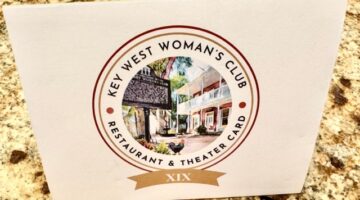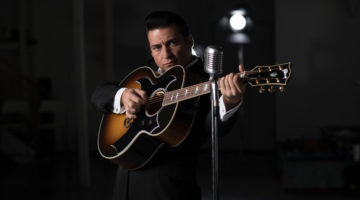PHOTO/
Clement Richard Attlee, 1st Earl Attlee.
New truths about President Truman
KONK LIFE STAFF WRIT
It was not only the United States that went through a seismic shock when Democrat Harry S Truman, with ratings hovering around 36 percent, won the presidential election over a much-favored Republican, Thomas E. Dewey.
Great Britain, three years earlier, was just as stunned when a socialist candidate for Prime Minister, Clement Attlee, won the election by a huge majority over the incumbent Winston Churchill, a war hero for his leadership in the victory over Hitler.
Whatever the surprise for each other’s nations, these two leaders now had to deal with each other as the top two individuals in the free world. And in the wake of a hot new TV series called “Manhattan” — it’s about 600 British and American men and women yanked out of the war to share space and time in the desert at Los Alamos to develop or subvert the atomic bomb, in the lab or between the sheets — comes a new biography of Clement Attlee that spills some new beans about Harry Truman.
They came from quite different backgrounds and had quite different career experiences. Truman was the son of a southern Baptist farmer and became a haberdasher and professional Missouri politician. As president after the death of FDR, he approved the atomic bombing of Japan. He faced national labor strikes and economic upheaval and an assassination attempt in his second term. He also boldly desegregated the armed services and he revealed a taste for the semi-tropics, spending many months playing cards with the boys at his Little White House in Key West.
Attlee was the seventh of eight children whose father was an attorney in Putney, south of the London Thames. As deputy prime minster in Winston Churchill’s coalition government toward the end of the war, Attlee presided over a decidedly leftward lean in the nation akin to the anti-aristocracy resentment that afflicted Downton Abbey following the First World War. Attlee, writes historian Michael Jago, author of the just-published “The Inevitable Prime Minister,” had an enormous nostalgia for the London of Sherlock Holmes, the horse drawn carriages and the smell of manure in the streets. Whenever he traveled to America he’d catch up on the cricket scores while on the plane. The first Oxford graduate to become a socialist Member of Parliament, he seemed something of a freak (although he would be followed by many left-leaning graduates).
No peacetime British prime minister, points out Jago, had ever faced so bleak a prospect as Attlee did in winning the election of 1945, with “a bankrupt, half-ruined country, unable to feed itself and hugely in debt.” When Churchill went to make his seminal “Iron Curtain” speech about the Soviet Union in Fulton, Missouri, he did so on a government allowance of £10 a day, no exceptions for anyone.
But the greatest difficulty for any British prime minister visiting America at the end of the war, insists Jago, was the difficult new president. “Harry Truman relished his reputation for straight-talking, tough dealing and shooting from the hip, a man wholly without Franklin Delano Roosevelt’s sentimental attachment to Britain and all too determined to show where the buck stopped.”
The biggest problem between America’s President Truman and Britain’s Prime Minister Attlee would be the post Hiroshima-Nagasaki nuclear understanding between the two allies known as the Quebec Agreement, signed by Churchill and Roosevelt on Aug. 19, 1943, two years before the end of World War II, in Quebec City, Canada. It defined the terms of a coordinated development of the science and advanced engineering related to nuclear energy and, specifically, weapons that employ nuclear energy. The joint agreement was between the United Kingdom and the United States and it effectively bound the United Kingdom, Canada and the United States to share all nuclear information. Further, the U.S. had effectively bound itself not to use atomic weapons without Britain’s consent.
Truman and the Republicans were totally opposed to this and came up with the Atomic Energy Act of 1946, which forbade the sharing of nuclear information with any other power. Attlee was against this and insisted that all Anglo-American relations had to be on the basis of absolute equality.
Writes Jago: “Truman for his part saw himself as the lone sheriff facing various bad hombres at high noon and was in no mood to have mere members of his posse make such demands. So Attlee decided that Britain would build its own bomb.”
Attlee visited the U.S. only twice, both times concerning the atom bomb.
The second time was because Truman was making noises about using nuclear weapons to settle the Korean conflict. However, discussions about the bomb apparently occupied just one meeting between the two leaders.
However, a witness to the meeting, Norman Brook, later Lord Northmanbrook, a cabinet secretary who accompanied Attlee to Washington on that trip, told the late biographer Philip Williams, who in turn told W. W. Johnson (who reviews Jago’s biography of Attlee in the latest London Review of Books), made the claim that the meeting was a very big deal indeed.
“It was all about the bomb and began disastrously,” he told Johnson, “with Attlee sharply reminding Truman of the Quebec Agreement and that British troops, too, were in Korea, so that on both counts no escalation in the use of nuclear weapons could be considered without the consent of the British government. Truman,” Brook continued, “in equally direct and terse language, made it clear that the decision would be his. After a quarter of an hour, complete deadlock had been reached.”
Brook continues, in the words of reviewer Johnson, his story of what happened next. “I ventured that it was not often that one found two Allied leaders together who had served in much the same part of the Western Front in the Great War. Truman, though exempt both by age and as a farmer, had volunteered and fought with distinction in the Meuse-Argonne, rising to captain. He had an enormous regard for fellow volunteers and quickly discovered the salient facts of Major Attlee’s equally meritorious career.
“Before long, both men were at the piano, drinking and singing First World War songs. The evening ended in complete amity. Attlee explained that he just needed an assurance that Truman would not use the bomb without his say-so. Truman happily agreed but both men saw that it would be best to say as little as possible about their agreement since it could be damaging to the alliance if Attlee admitted that he had to restrain the president and damaging to Truman if word reached the Republicans that he had given the Brits veto power over the American bomb.”
[livemarket market_name="KONK Life LiveMarket" limit=3 category=“” show_signup=0 show_more=0]


Wonderful insights on two of the most powerful leaders of their time. Did not know the bomb was being considered for Korea… Yikes! Thoroughly enjoyed the image of Harry T. and PM Attlee drinking, playing the piano and singing WW1 songs together after initially locking horns. Hard to picture Barack and Cameron coming close to doing anything remotely like that. Thank, Mark!